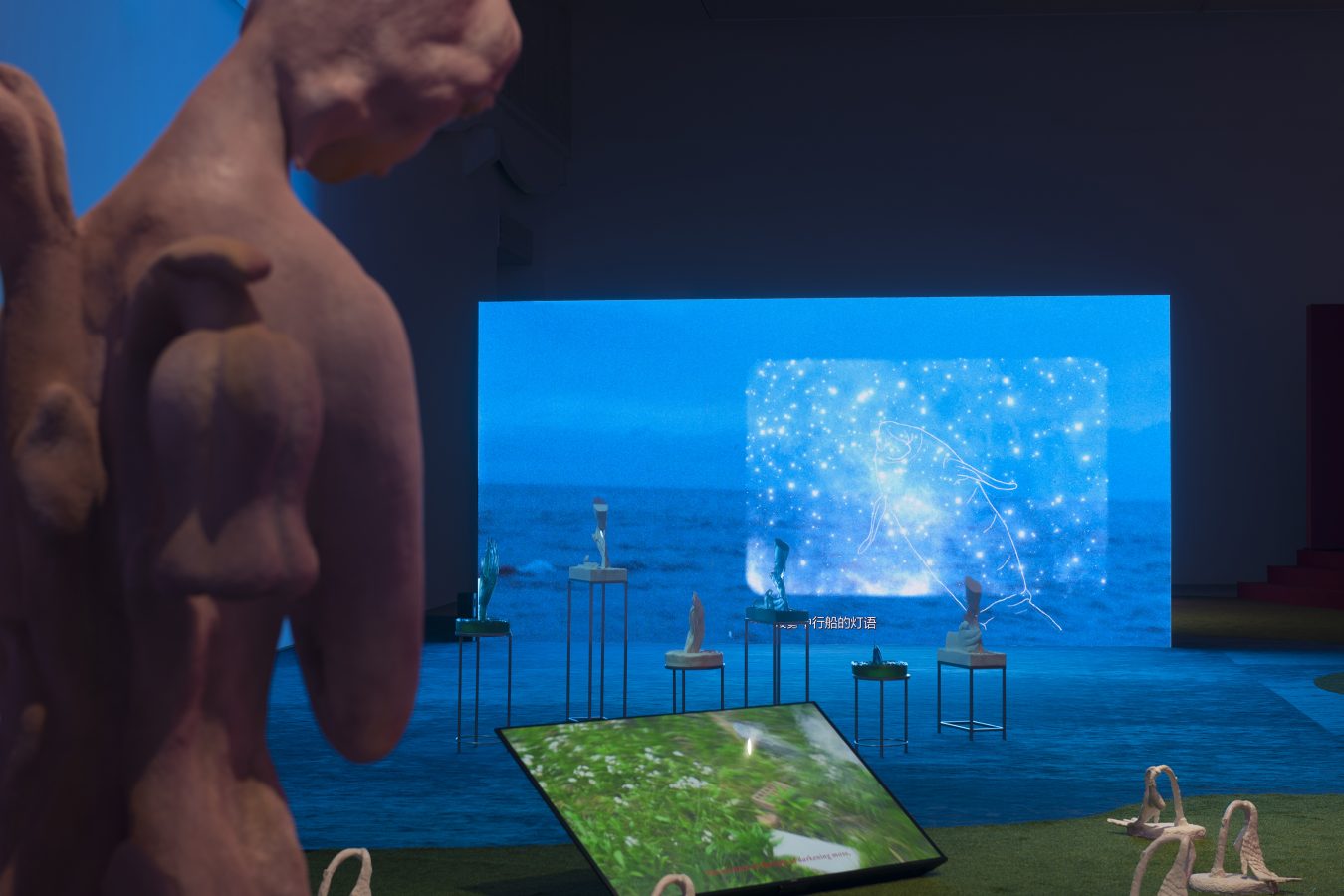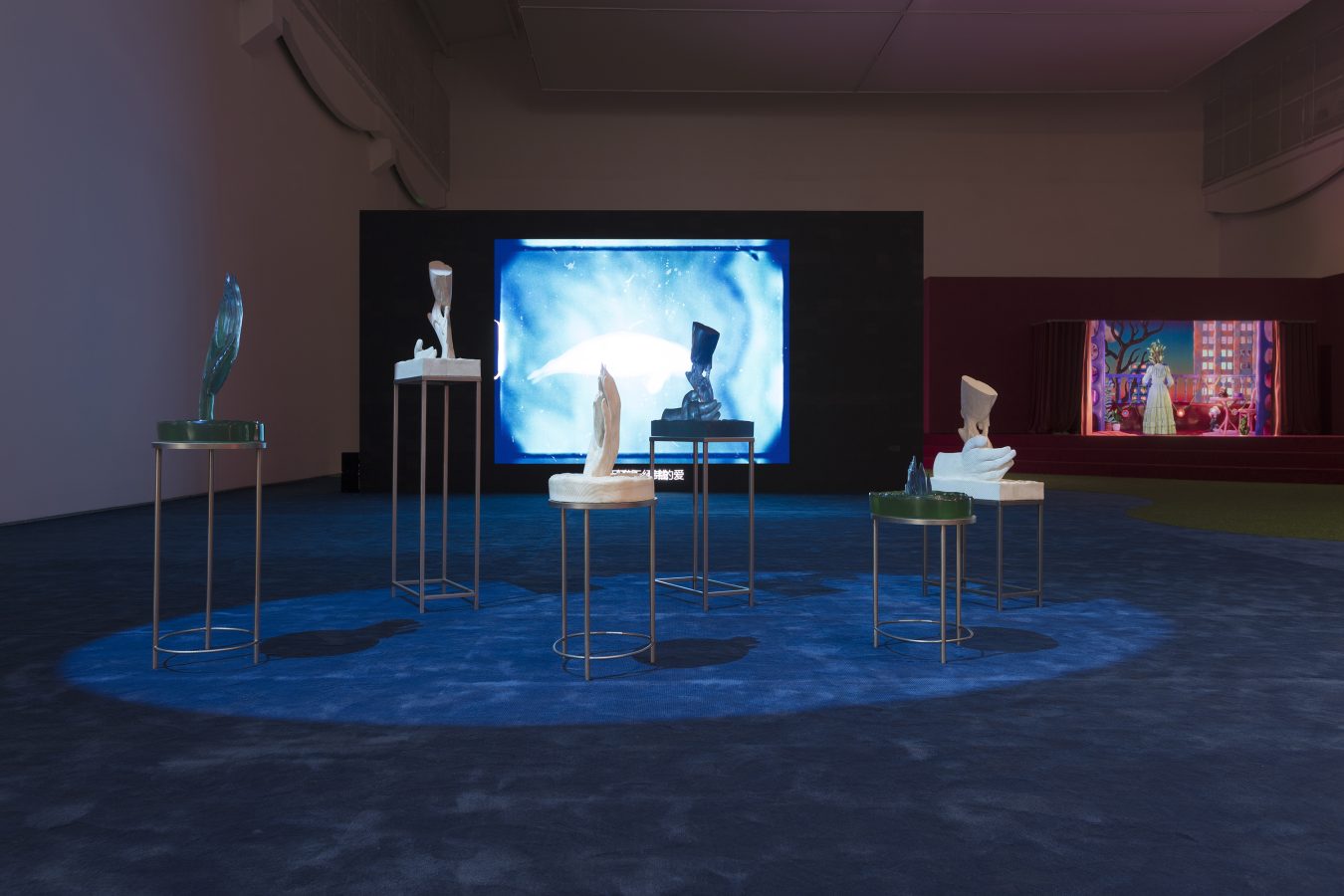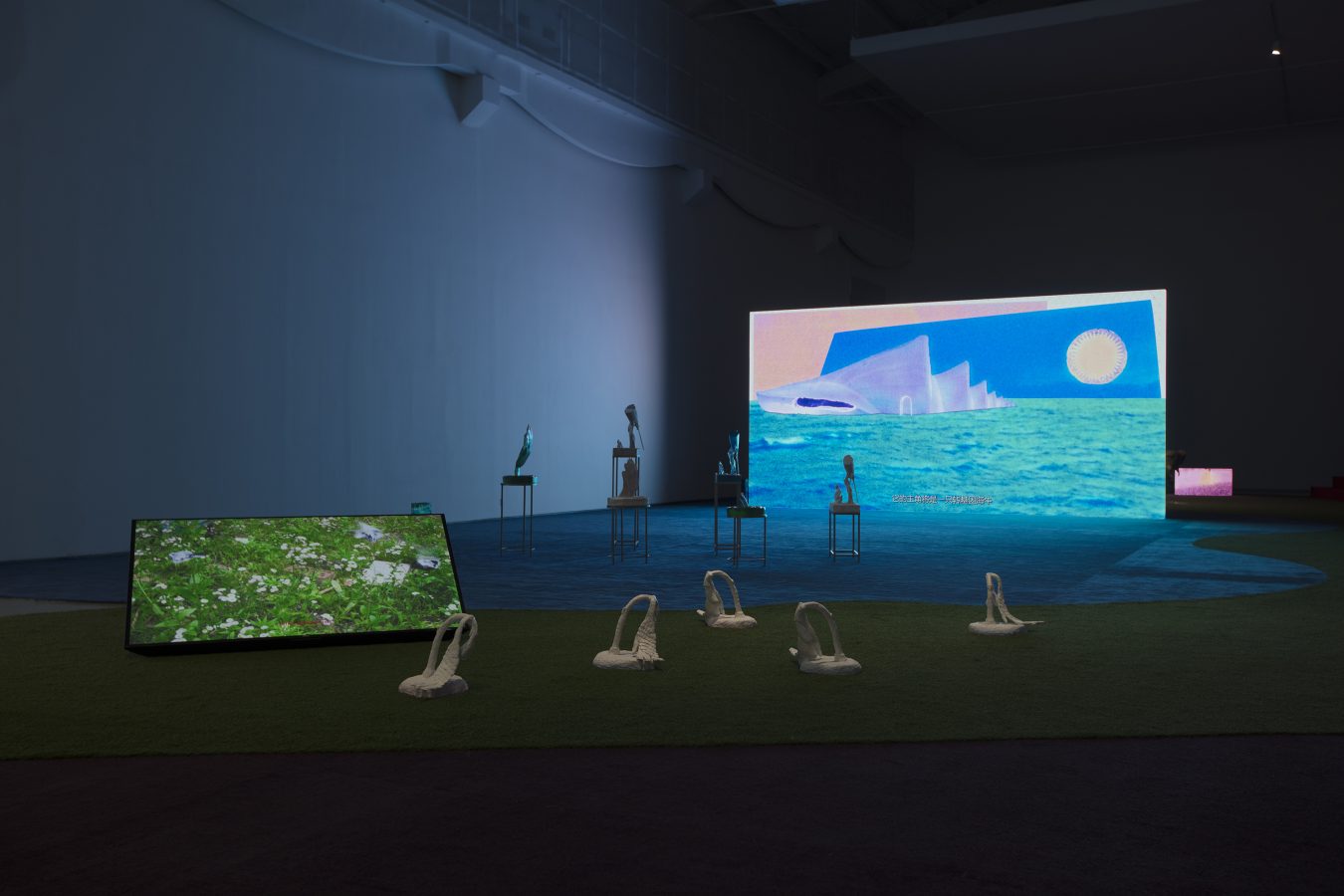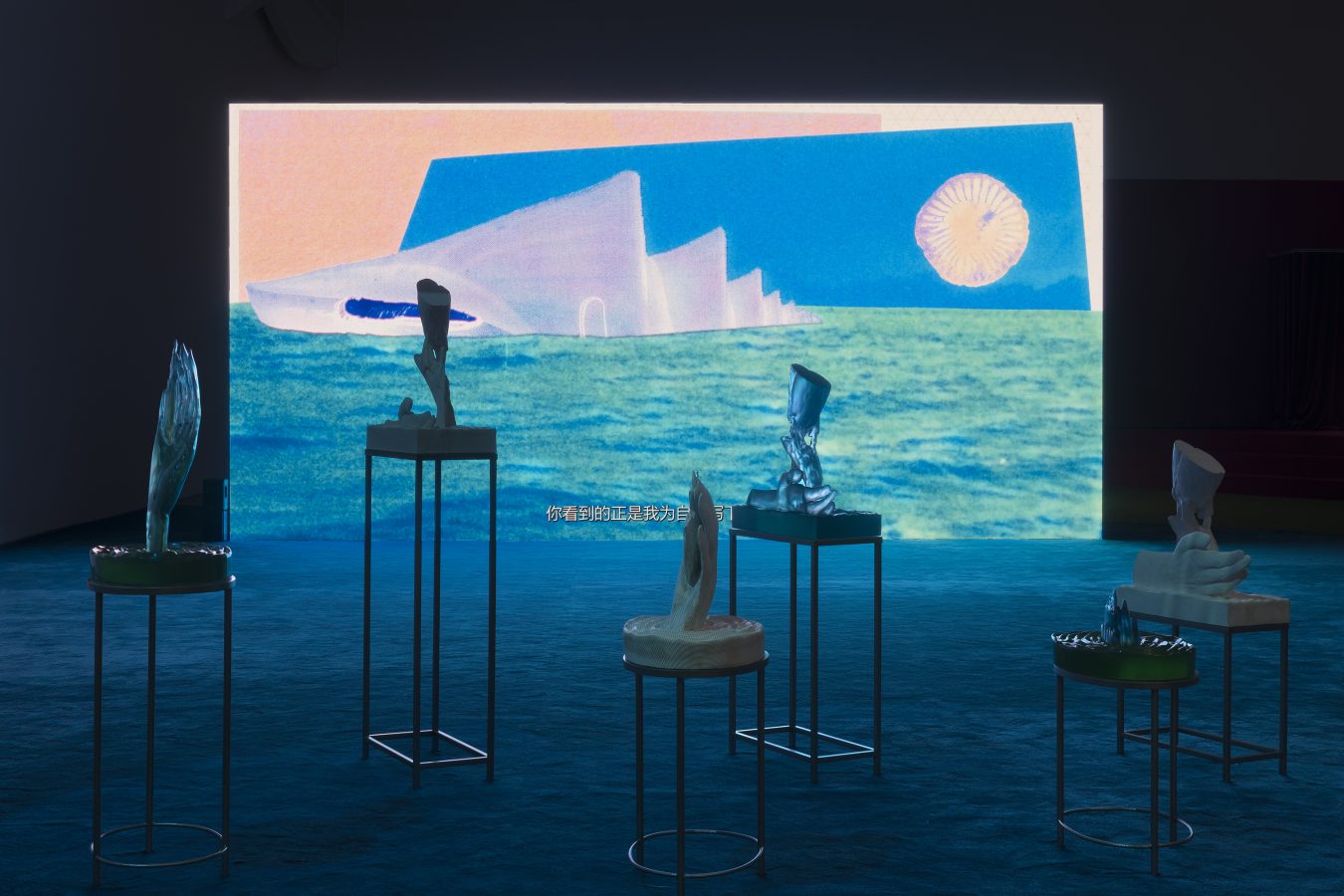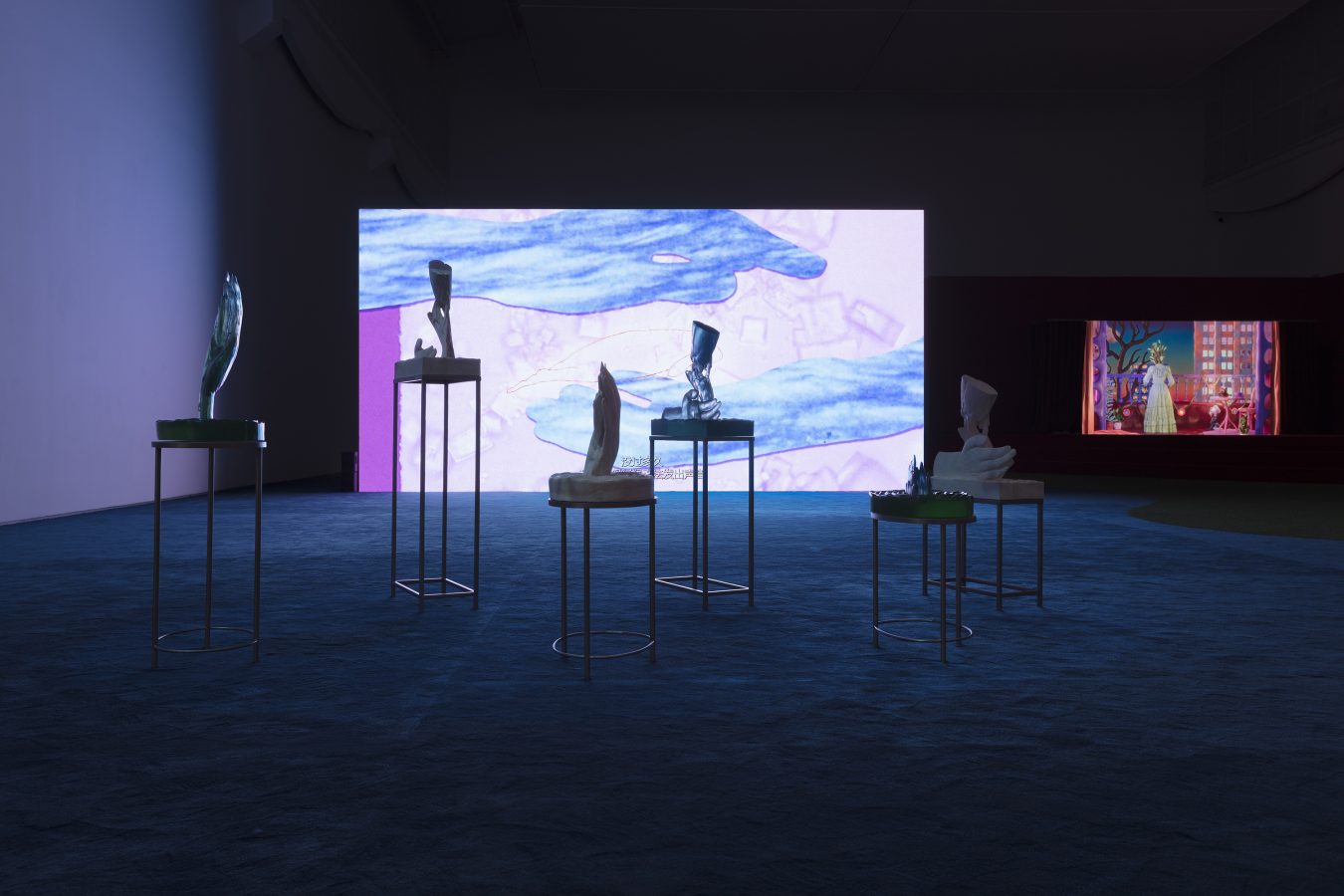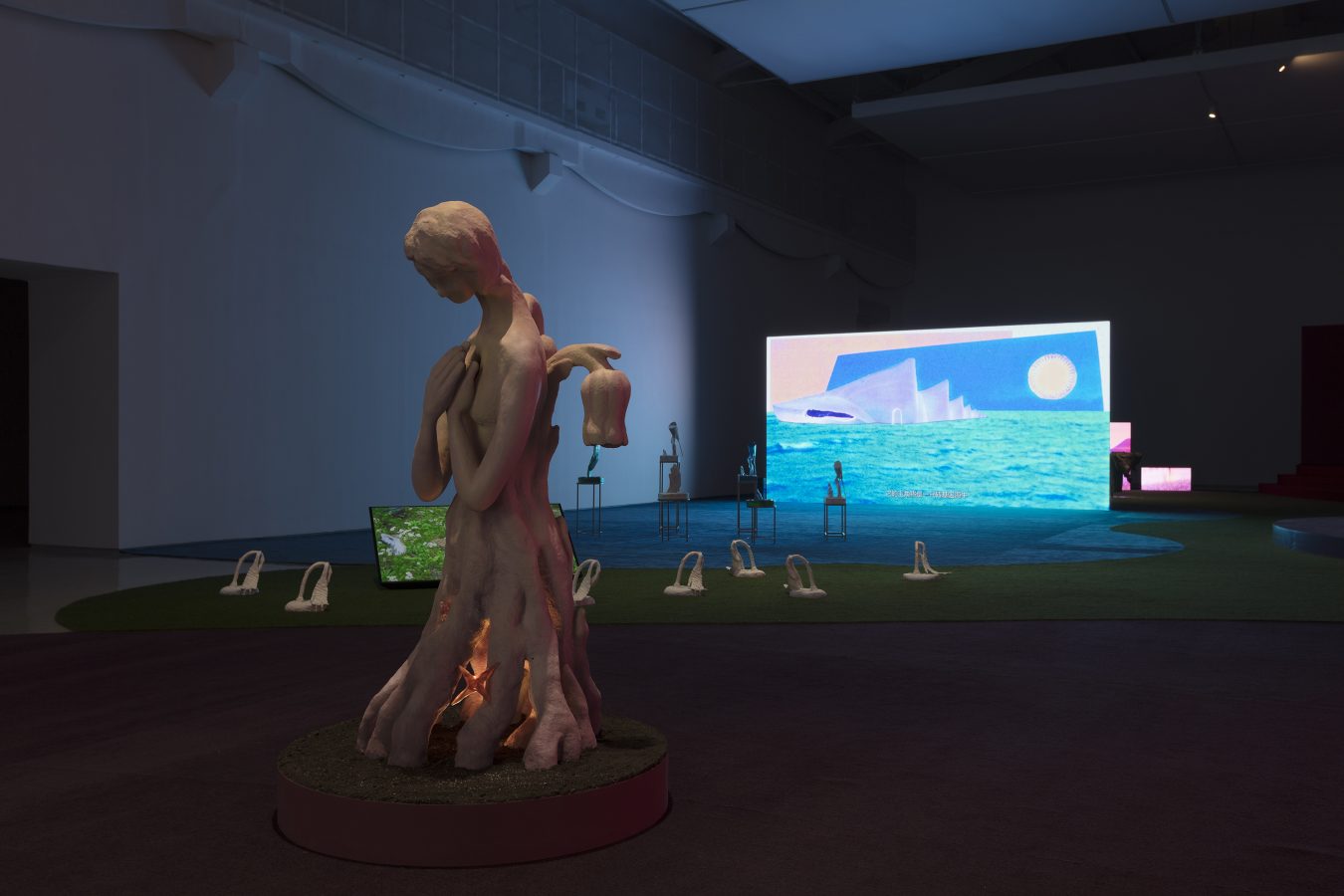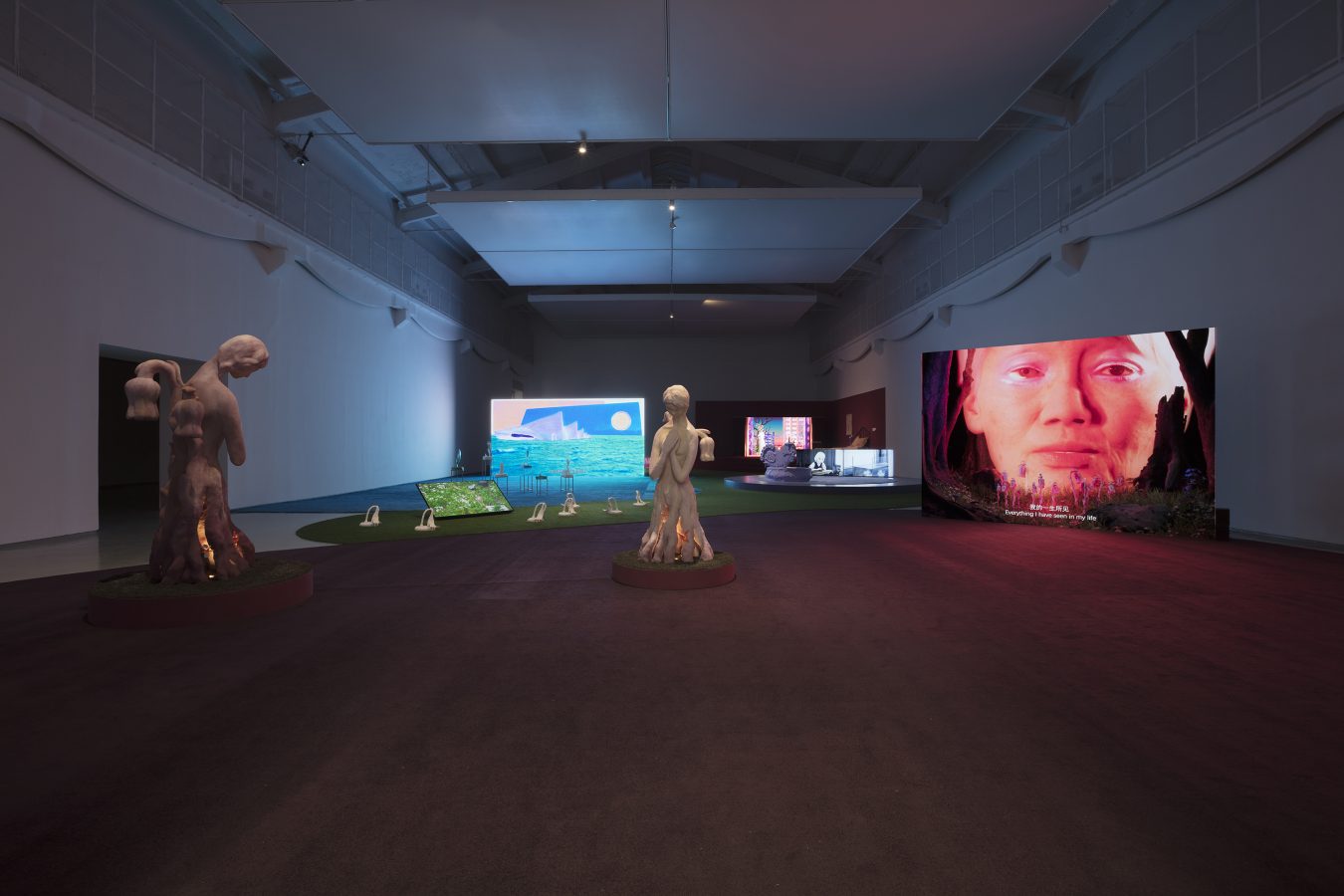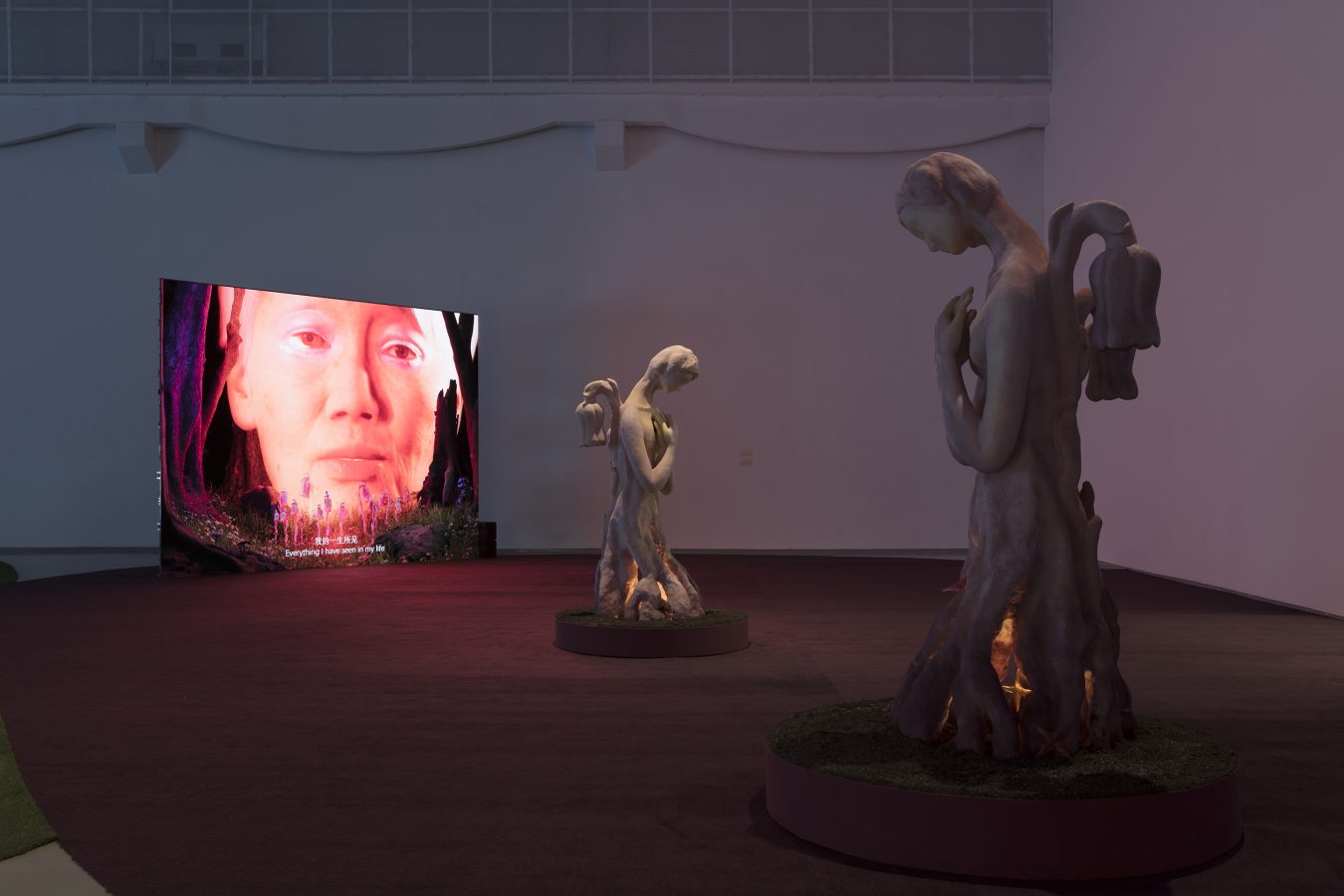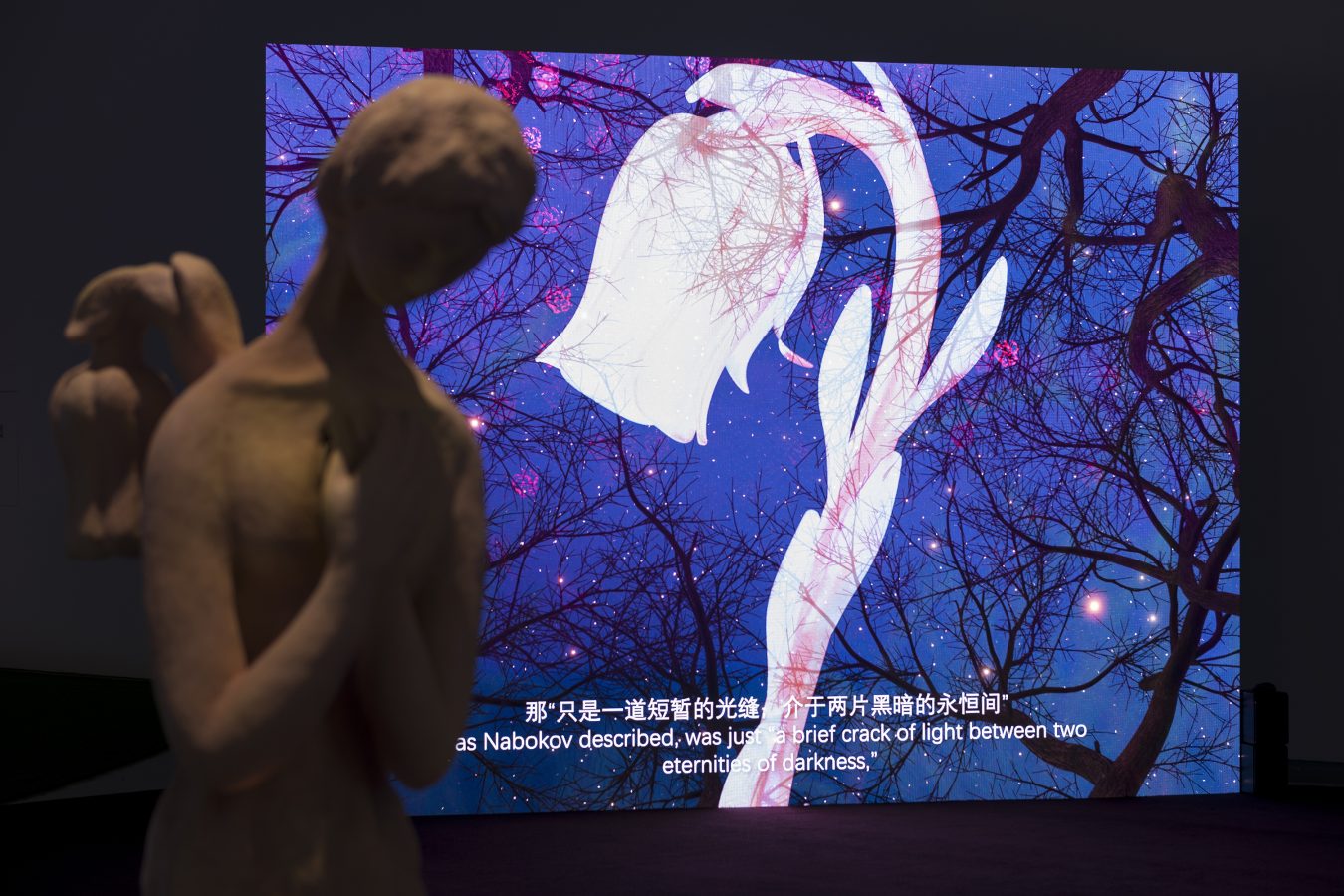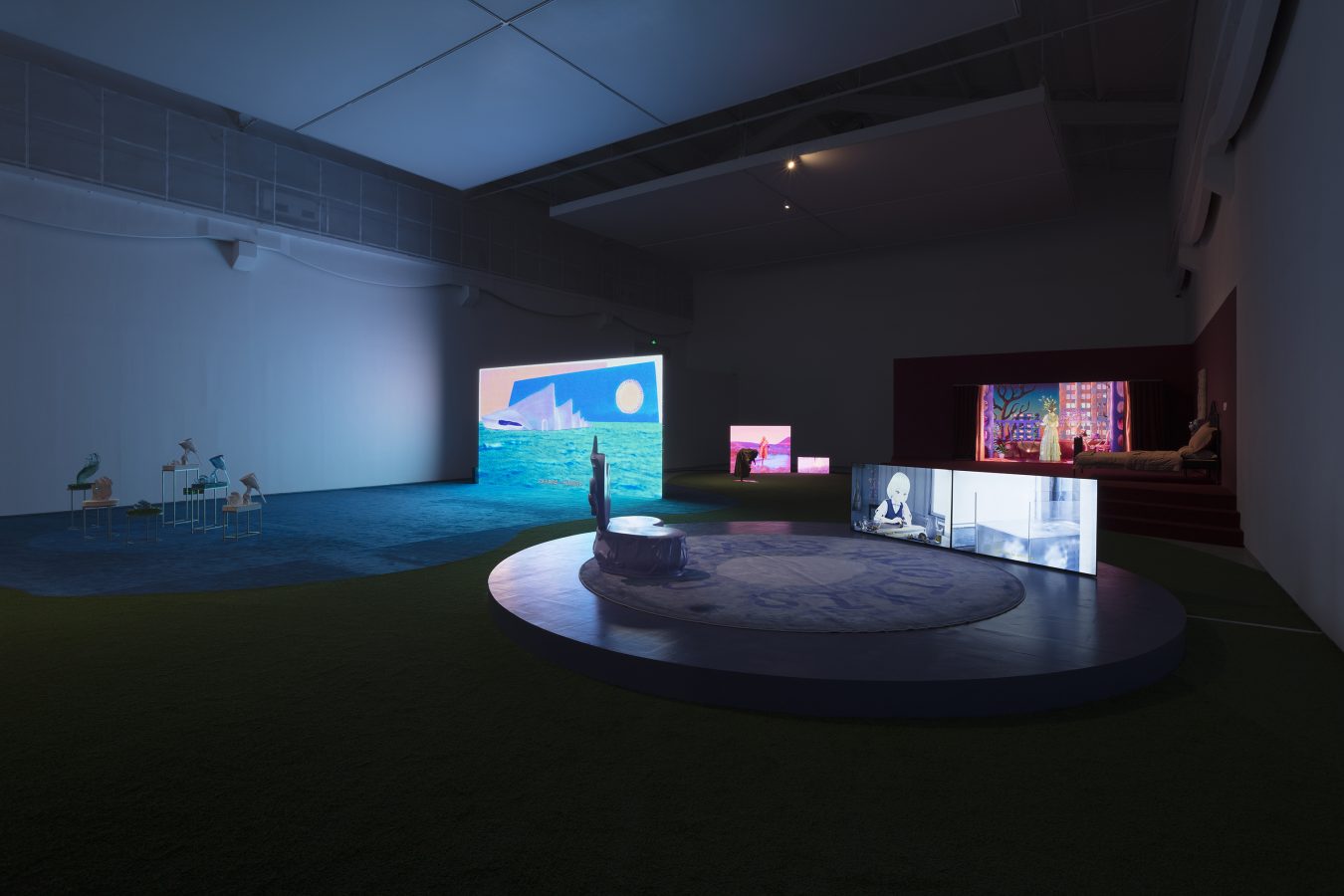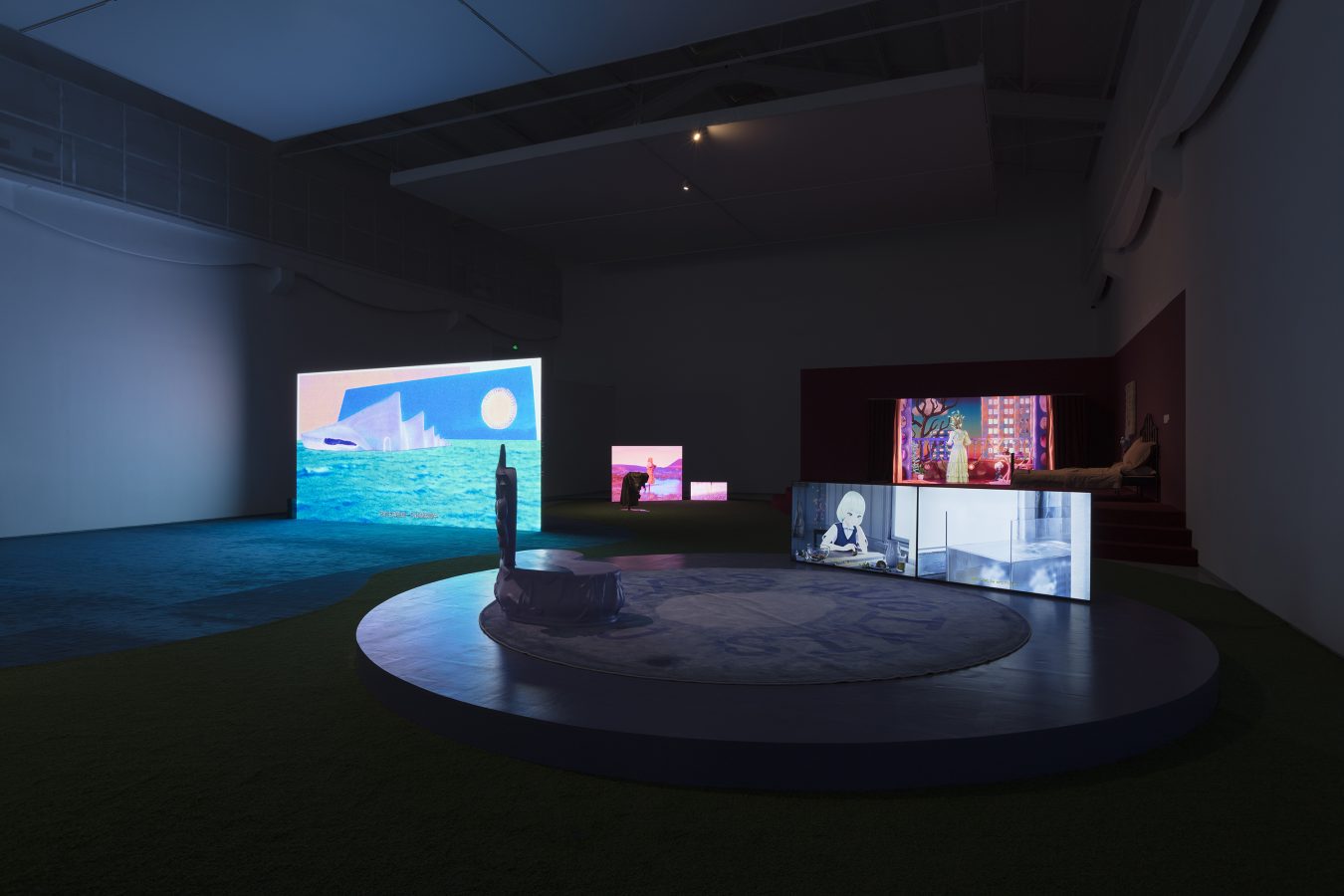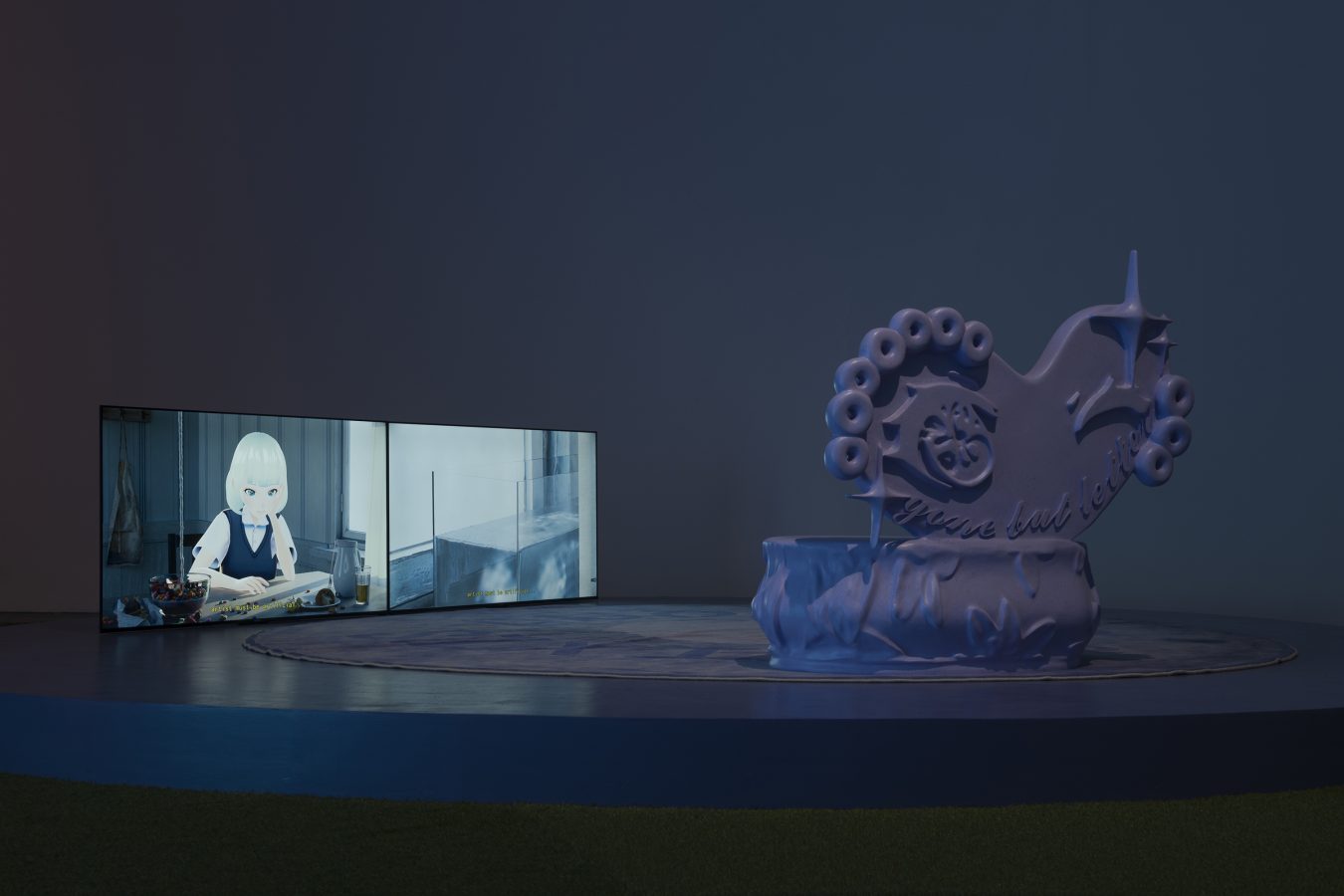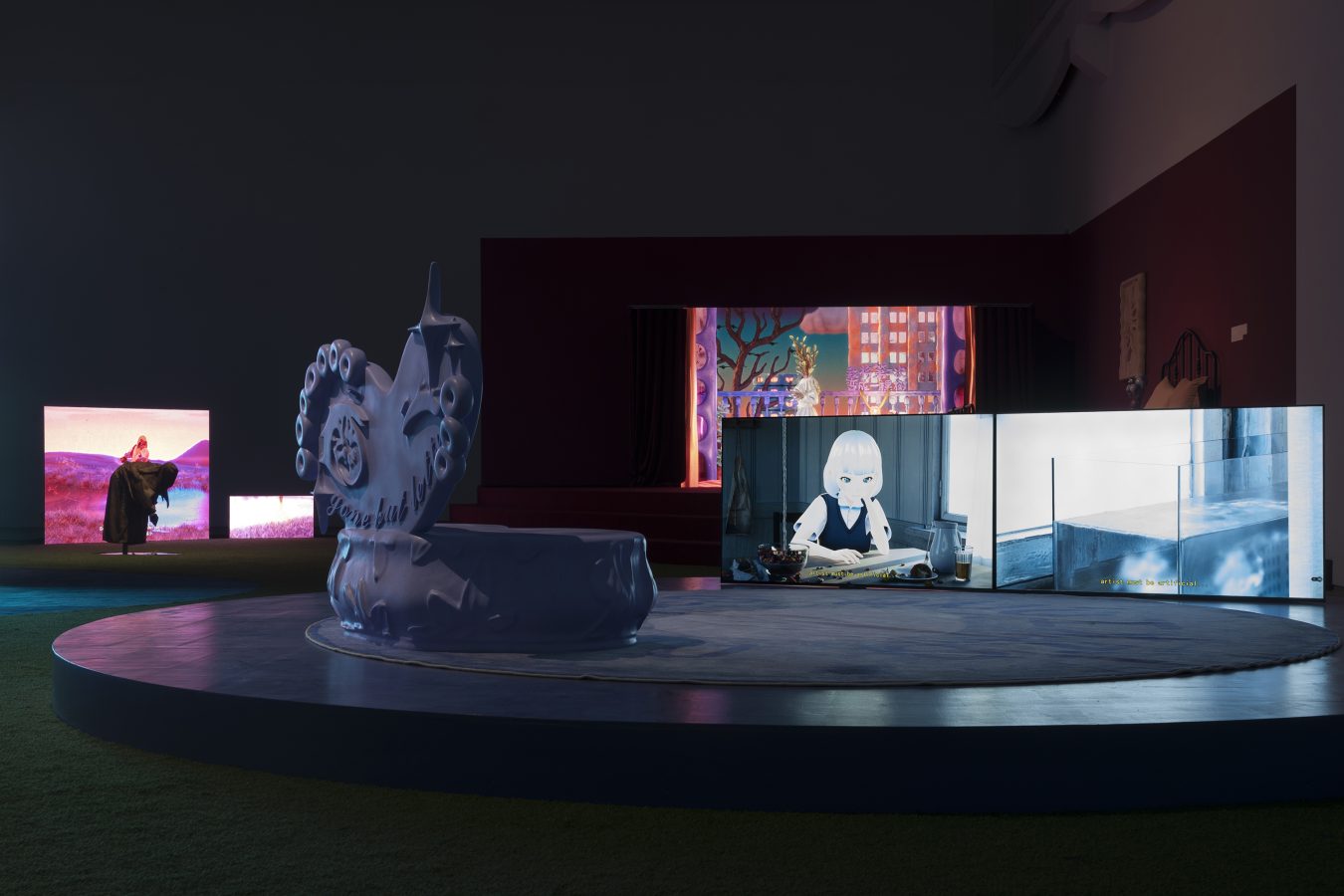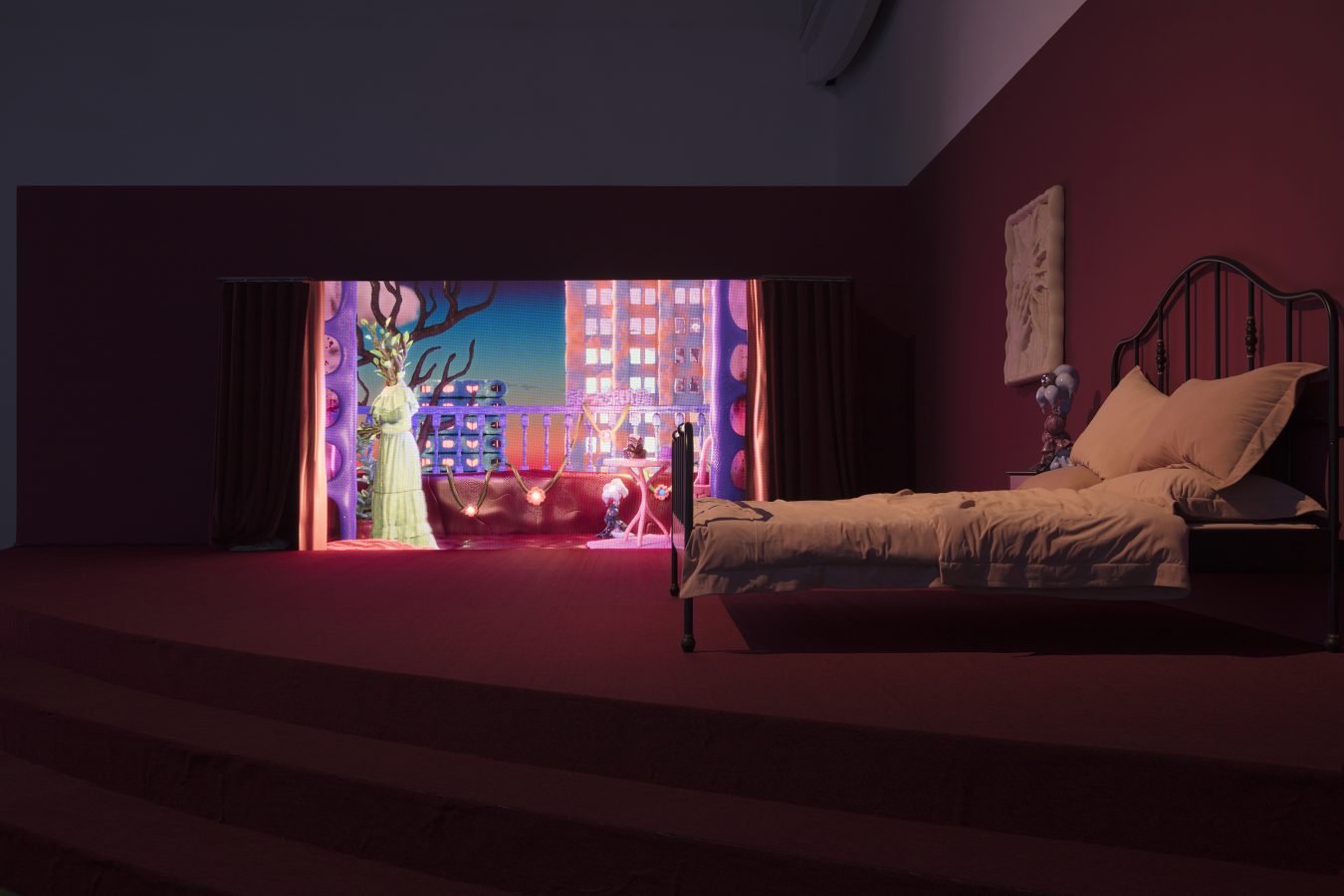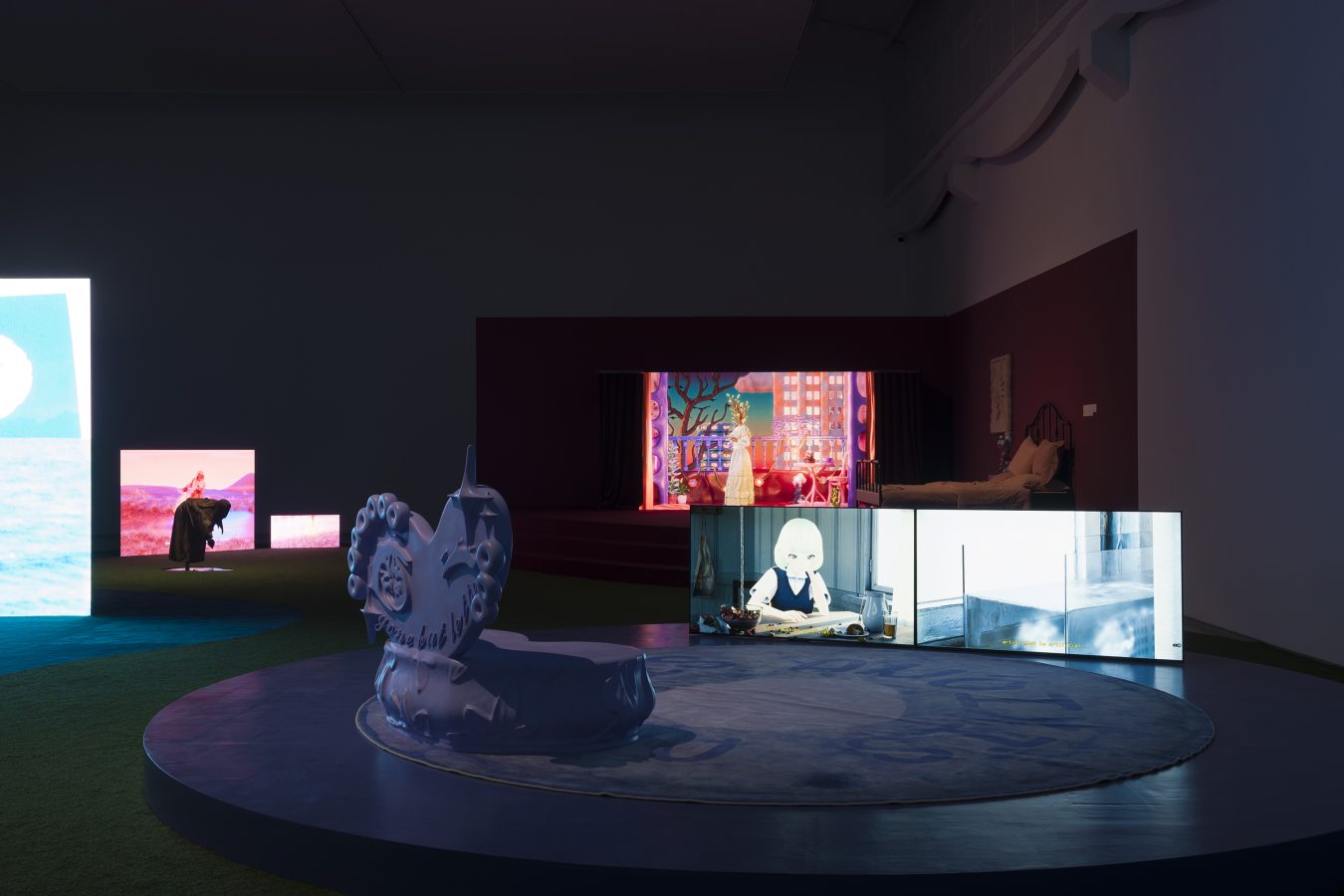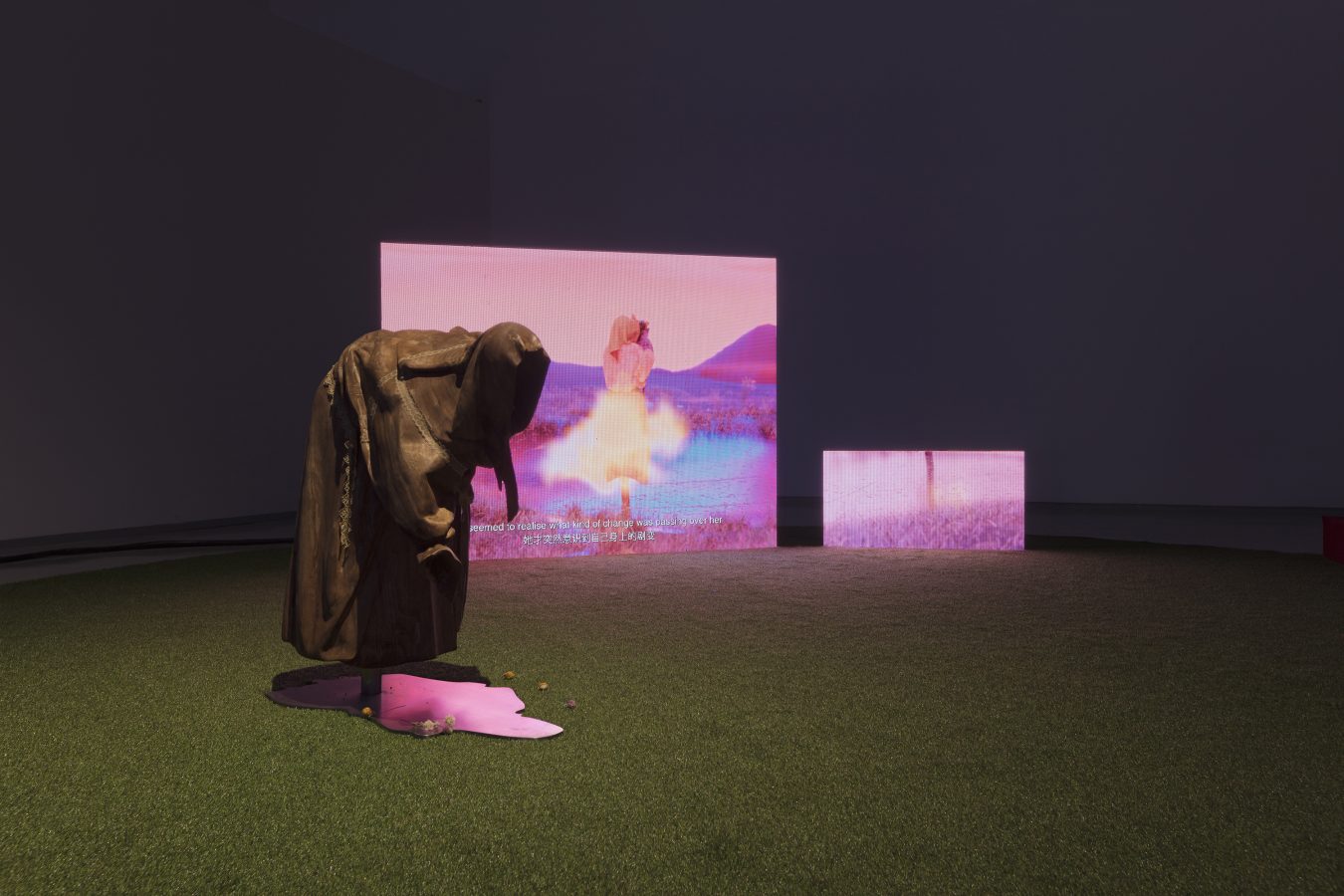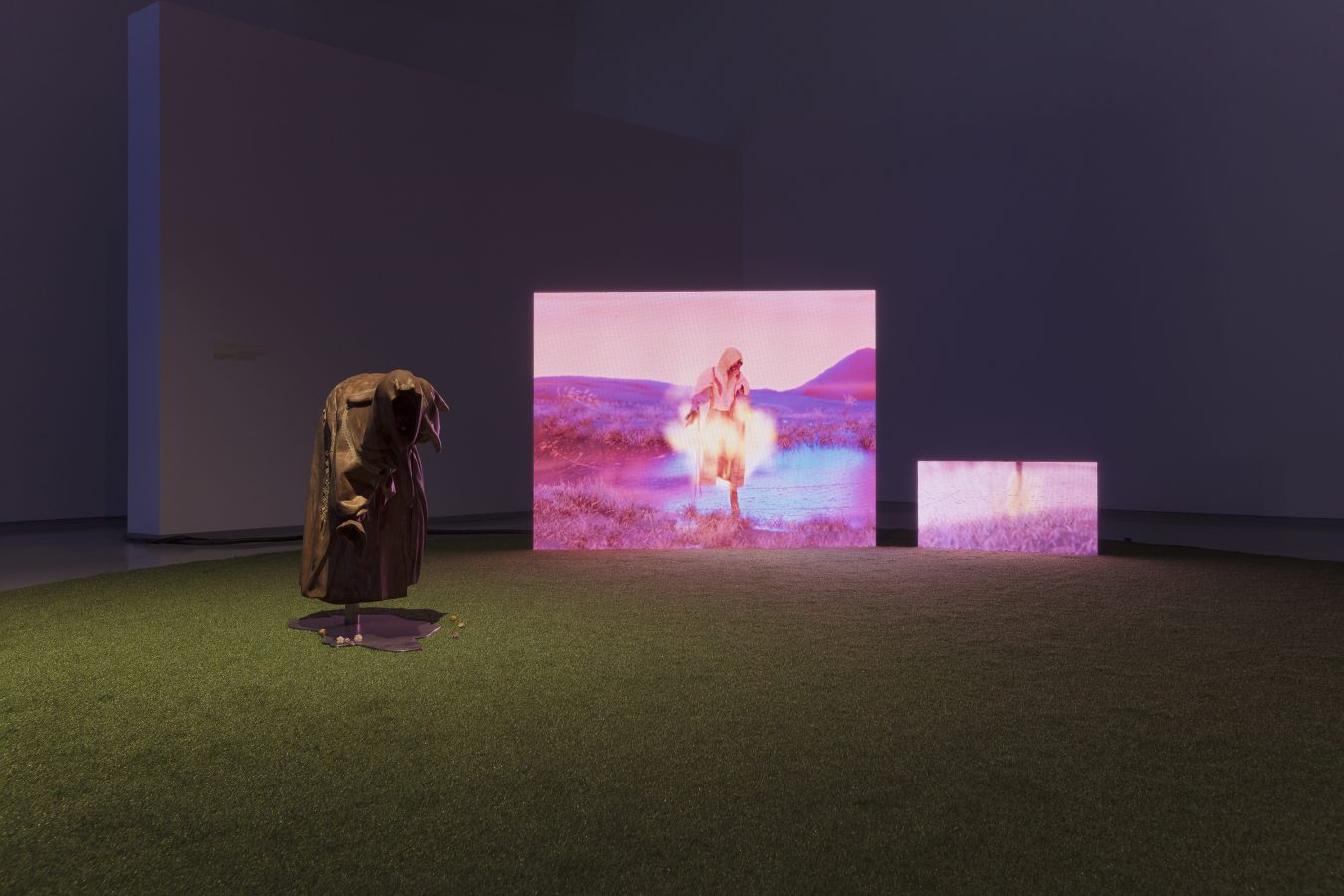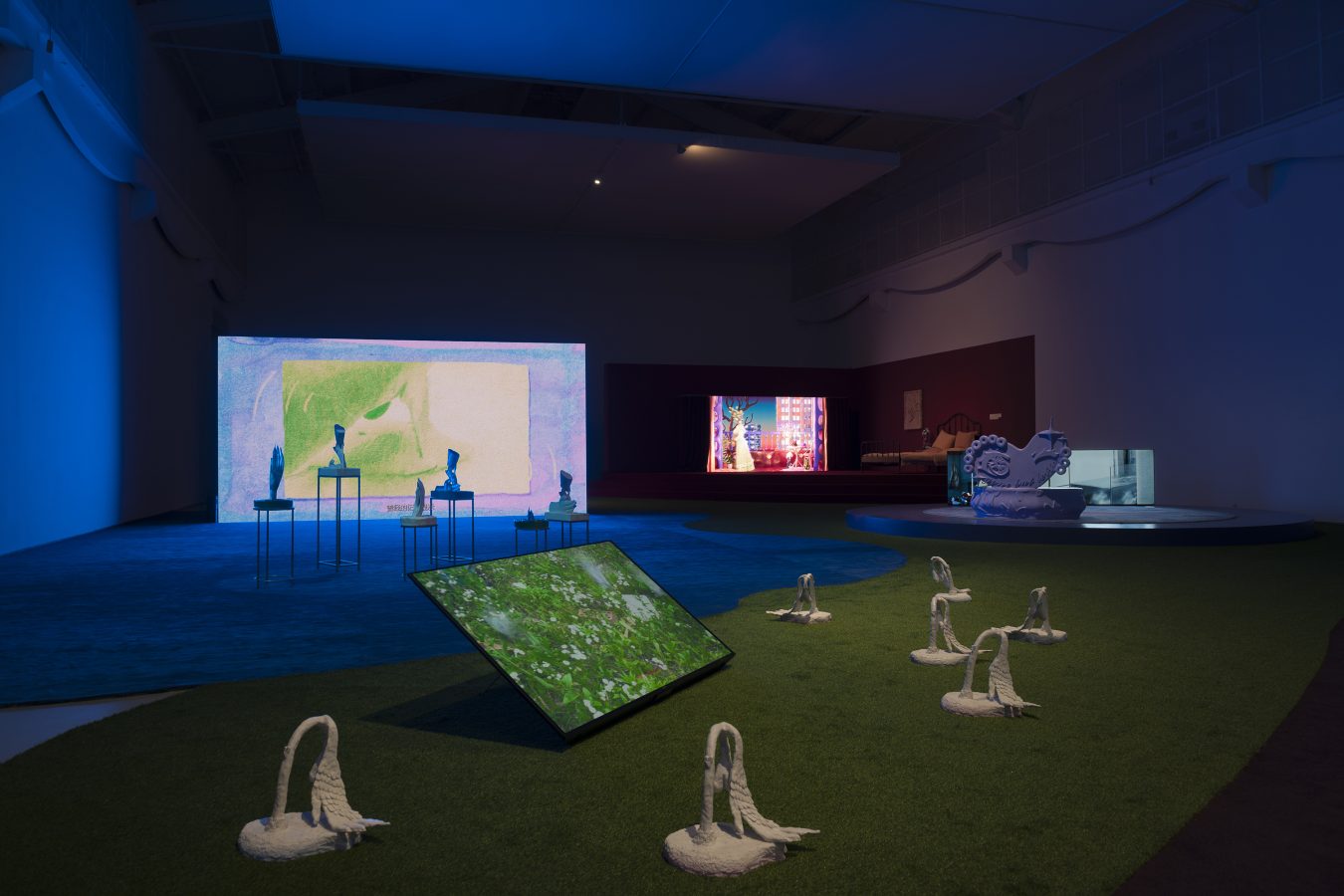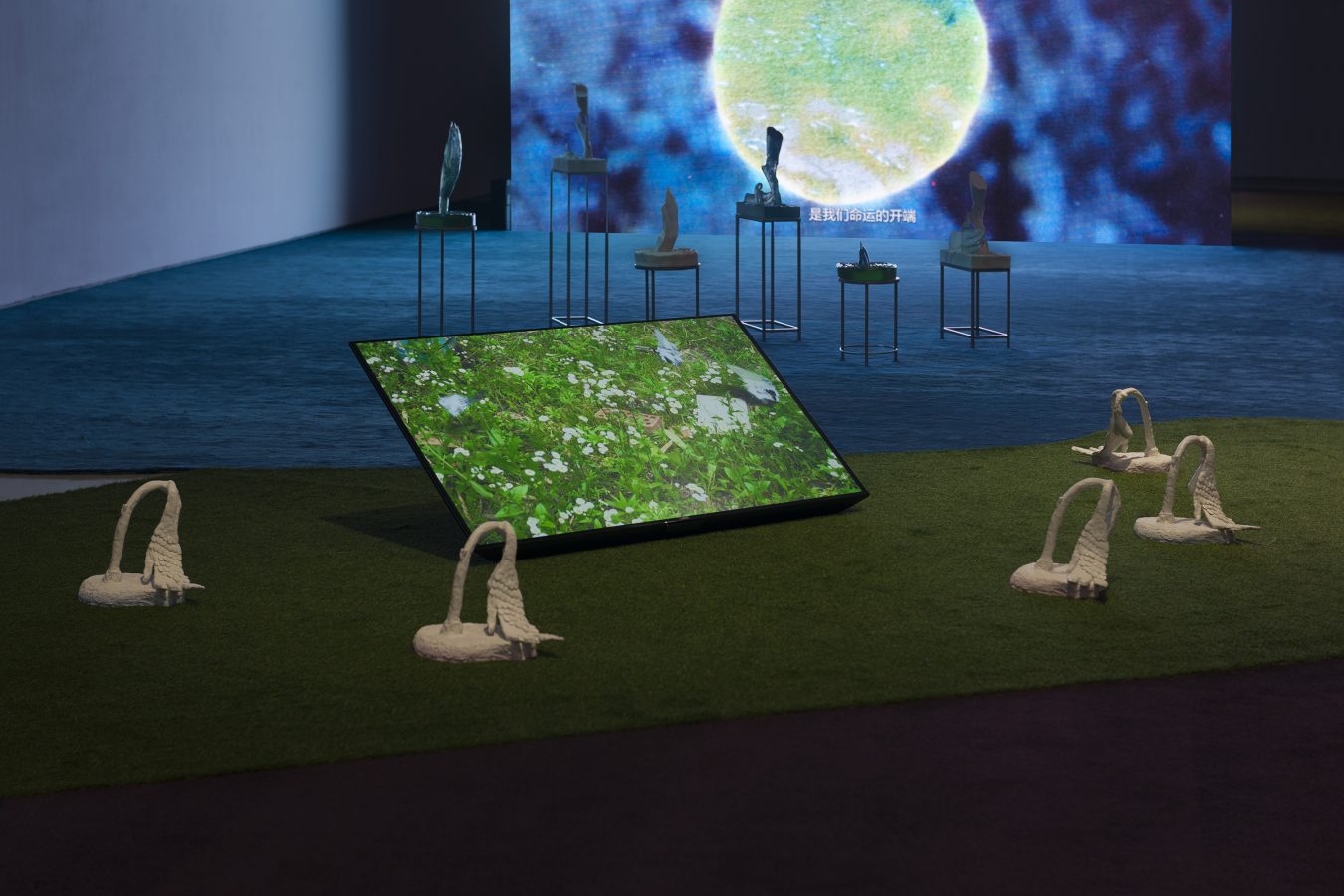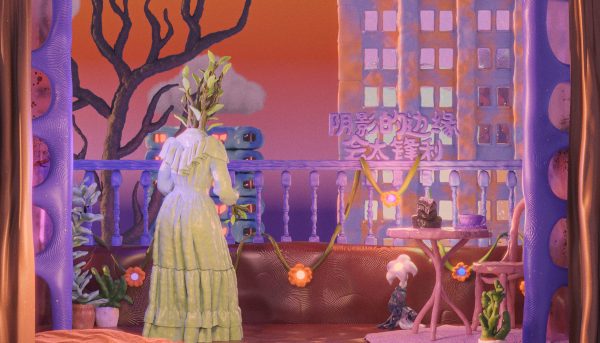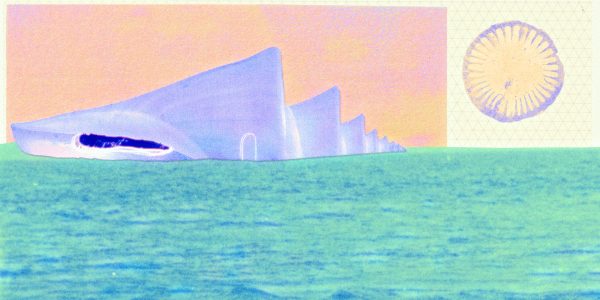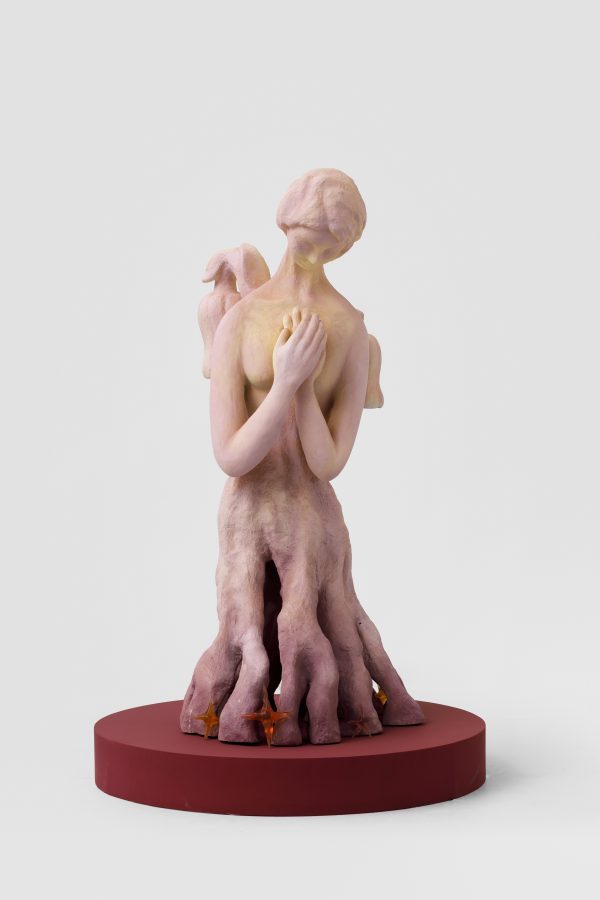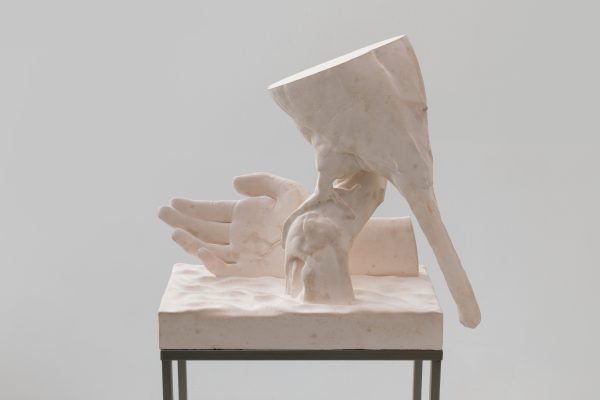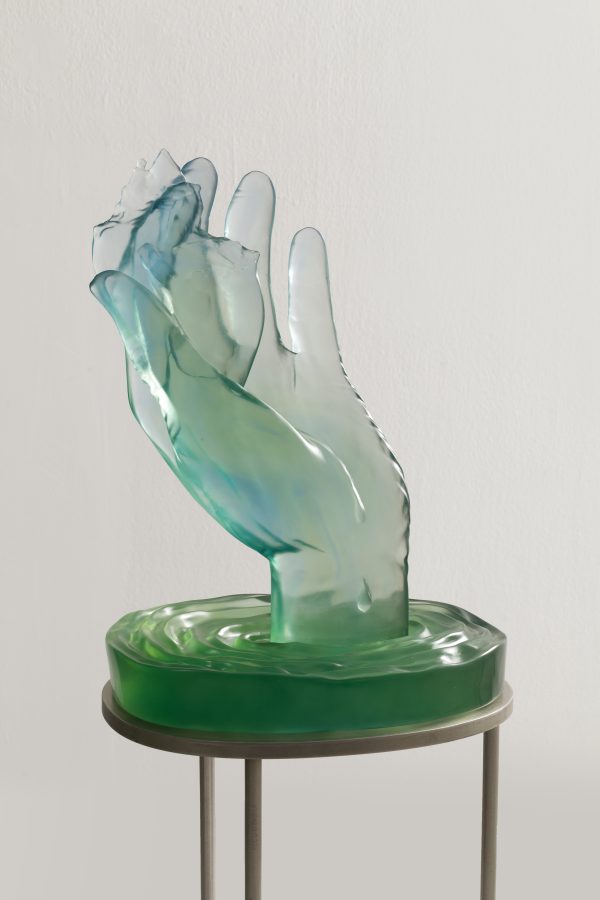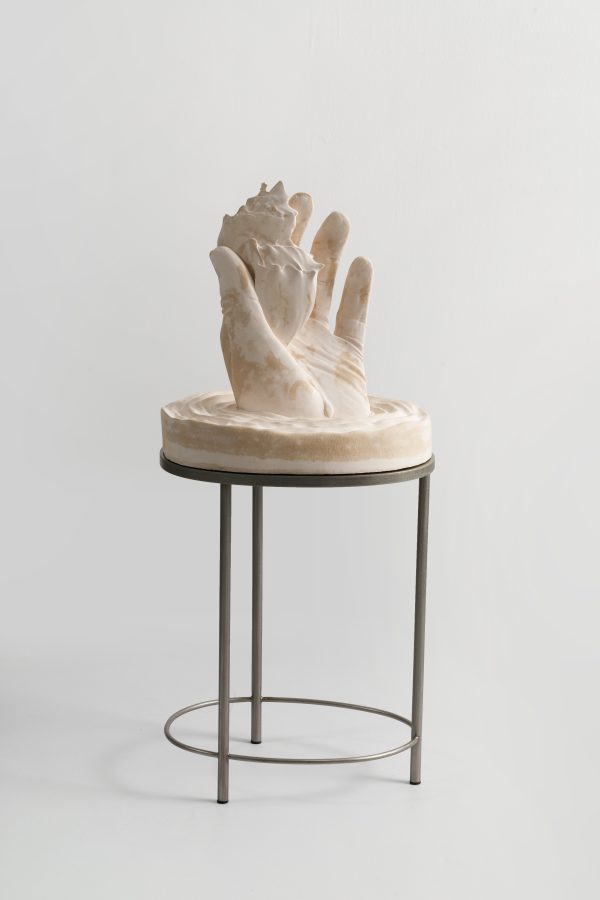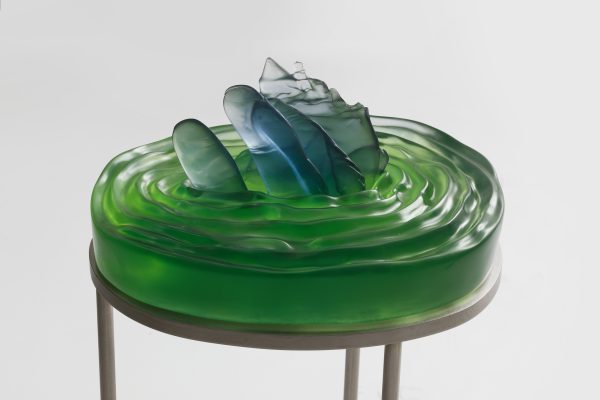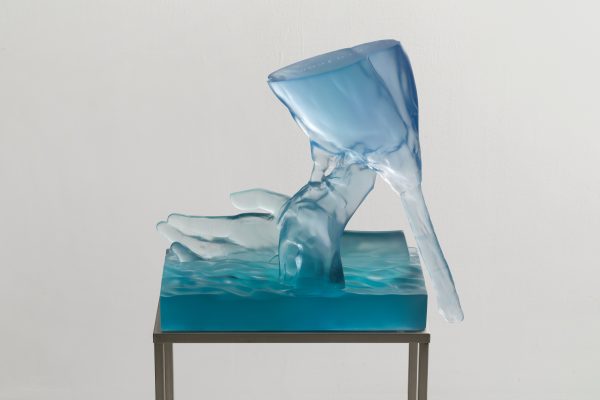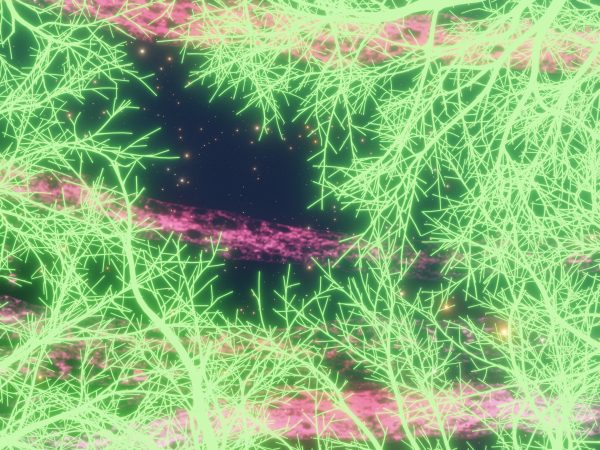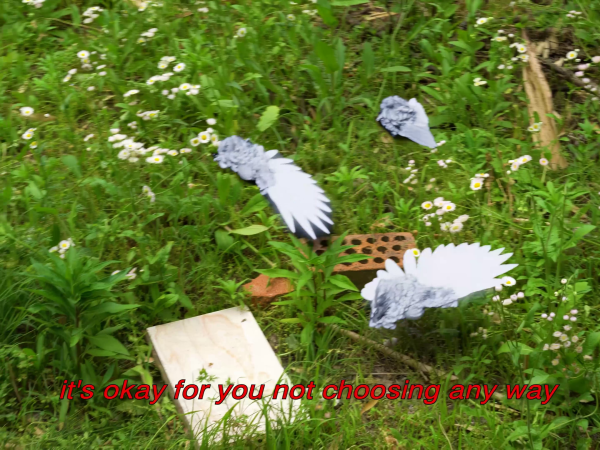Artist | Fei Yining
Curator | Yang Jian
Hive Center for Contemporary Art is thrilled to present the first solo exhibition, Little Songs of Futility, of Fei Yining (b. 1990, Harbin, China; now lives and works in Shanghai). The artist graduated from the School of Journalism at Fudan University and later received her MFA from Parsons School of Design in 2017. Her practice includes animation, video, and sculpture. Combining the absurd and the real in conjectural narratives, she explores potential alternative states of existence in the context of the posthuman era. This exhibition is Hive’s fortieth program of its Becoming Program and the first solo exhibition of the Becoming artists to be presented in Hive’s main exhibition hall A.
Fei Yining’s practice reflects her interest and passion for philosophy, anthropology, literature, and natural sciences. Her work is often accompanied by elaborate research, often to a greater degree beyond what she references in her work; as an artist, she relishes this hobbyist, not entirely academically stressful method of accessing the material and moments of inspiration that strike her. Apart from research, she prefers to process these information in a non-rational manner as the prerogative of an artist. She, then, attempts to establish coherence between the grotesque and variegated, the shattered and fragmented, the opulent and ignorant of this world. In some of her previous works that are more familiar to us, such as Breakfast Ritual: Art Must be Artificial, the artist renders a slice of time from the posthuman world where humanity has fallen: an AI in the form of a teenage girl reenacts Marina Abramović’s 1975 performance Art Must be Beautiful, Artist Must be Beautiful at breakfast, she chants a lingering, incantatory verse in which the message signifies the end of the old world. The arrogance revealed in the words of this ‘artifact’ teenage girl is a projection of humanity’s possible delusion and preposterousness.
The title of this exhibition, Little Songs of Futility, weaves the essence of two mystical, allegorical and fairy tale novels. The concept of the web is borrowed from E. B. White’s Charlotte’s Web, where a spider named Charlotte saves Wilbur the pig by miraculously writing words in her web while also expending her life. Fevvers is the protagonist in Angela Carter’s Nights at the Circus, who proclaims that “all the women will have wings, the same as I.” (Carter, Night at the Circus (London: Vintage, 1984), 168) at the end of the story. Fevvers cannot escape forever, and the miracle of the web is only temporary, but they are both powerful lives that have defied the seemingly rational world of today. In both Fei’s animated and sculptural works, the fictional heterogeneous figures she created are creatures external to the human system, with their ‘wings’ of Fevvers and their weaved ‘webs’. In this context, the artist mobilizes all kinds of knowledge that humanity is proud of to create certain chaos, constructing the antithetical but imperative dynamic of the anthropological dialectic: it fuels the creative impetus while subverting any integrated order.
Consequently, Fei Yining’s practice is highly inclusive, heterogeneous, and contains a naïve enthusiasm—whether for science fiction, texts, or the monsters she creates. The results are of course fascinating but often overwhelming to the viewer, as if underneath her extensive and thorough yet extremely self-referential research, the sheer volume of information presented already promises some comprehension it cannot deliver—but this elusive approach seems to be the point. An interesting solution to the absurd desire for universal understanding, each of Fei’s works takes a more self-reflexive, fairytale-like, and naïve approach to empathize with nature and ecology. The woman’s identity is embedded not in human society, rather, in a kind of matriarchal ecological world that interconnects everything. Instead of being presented with works, the viewers are invited on a journey of discovery, performing the ideal role of Roland Barthes’ postmodernist reader.
